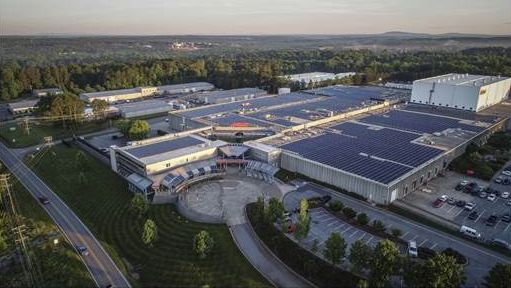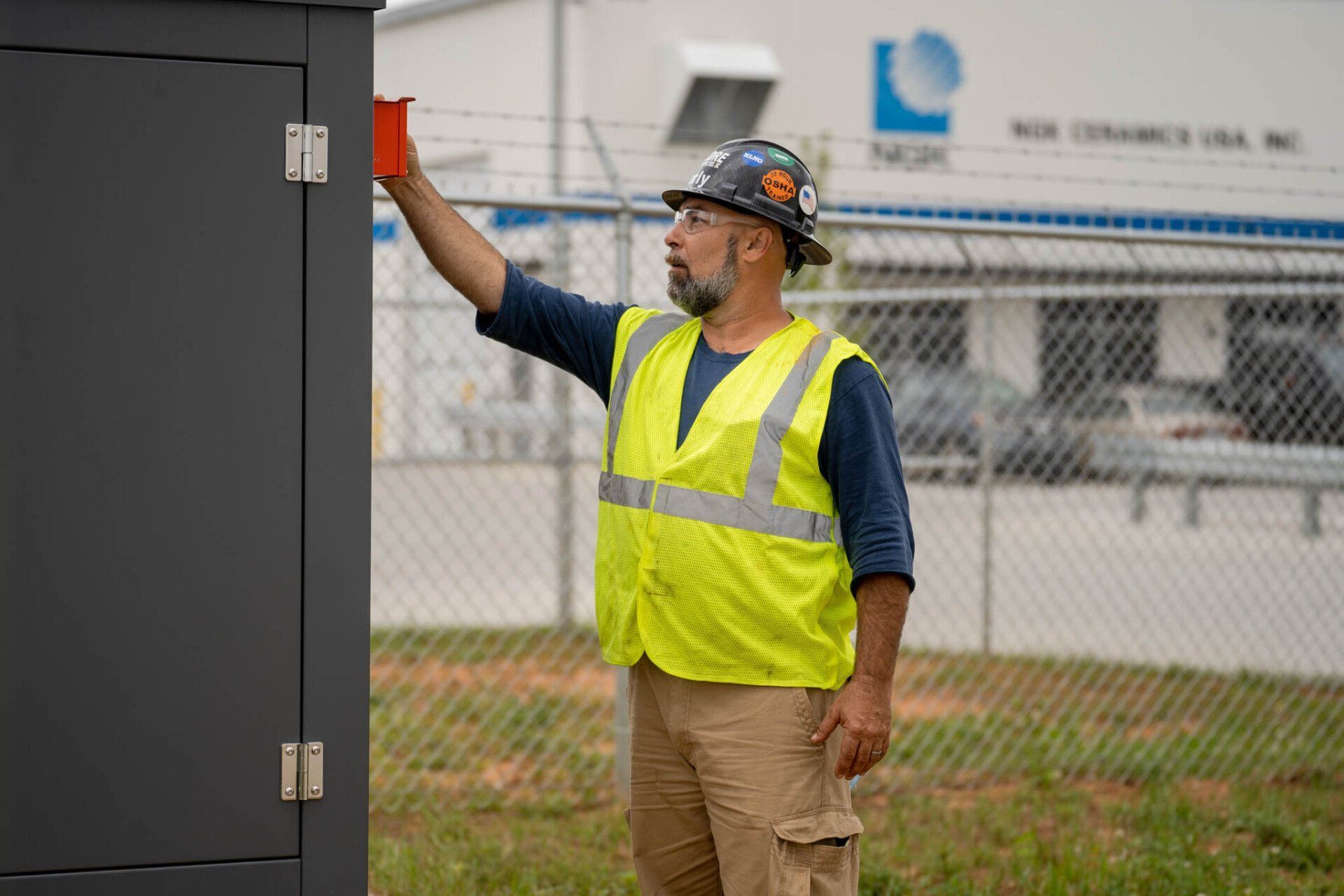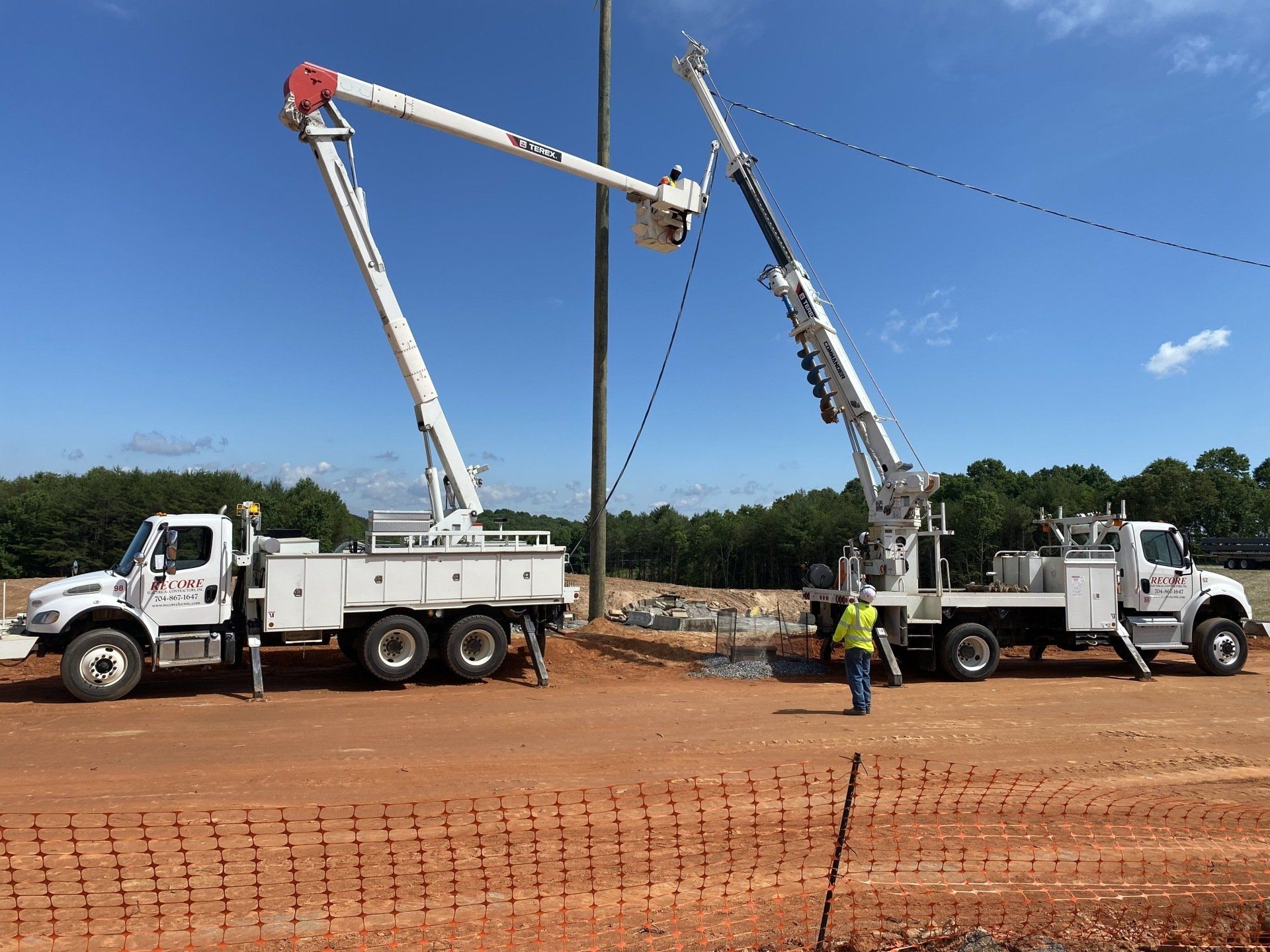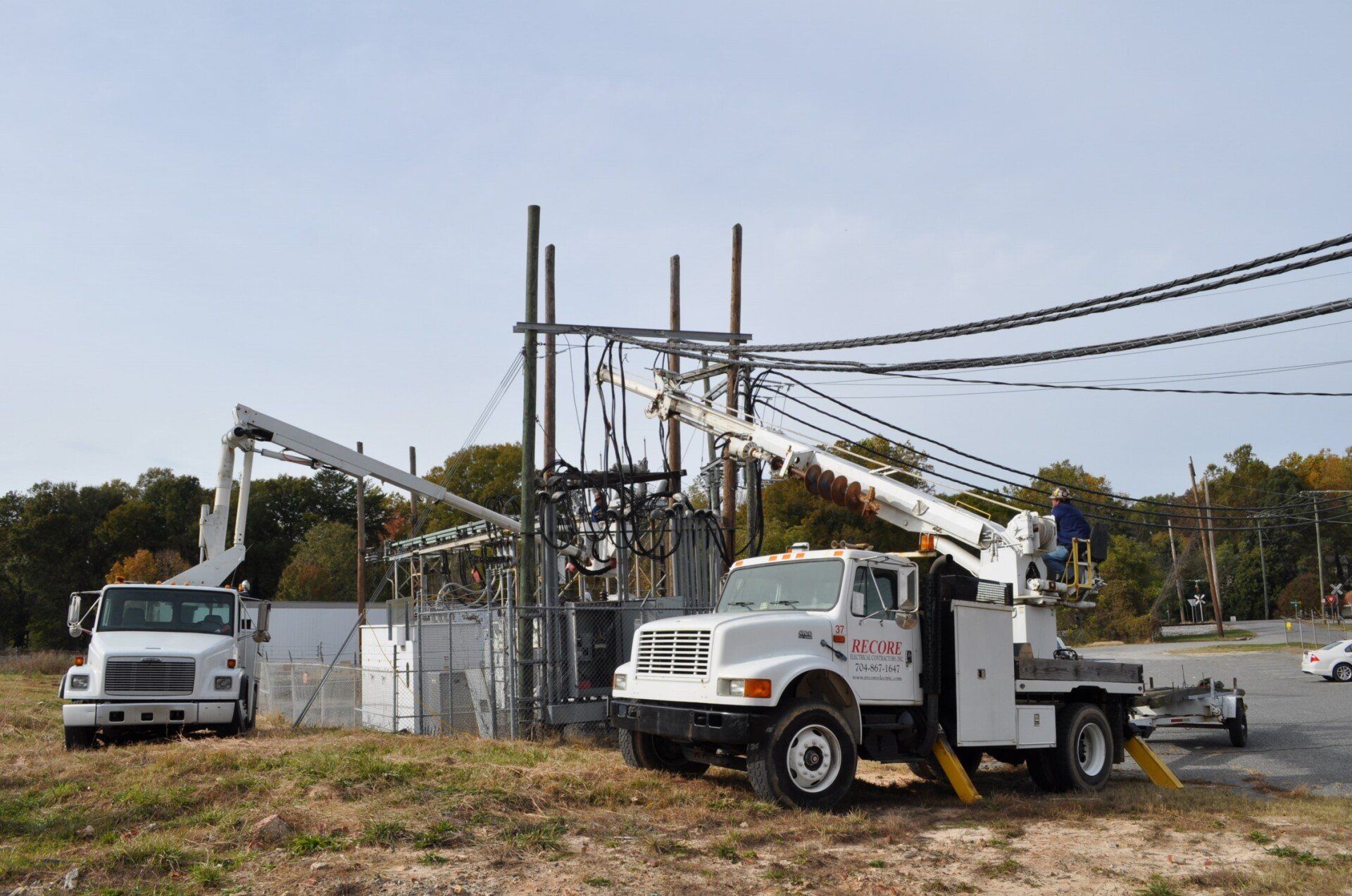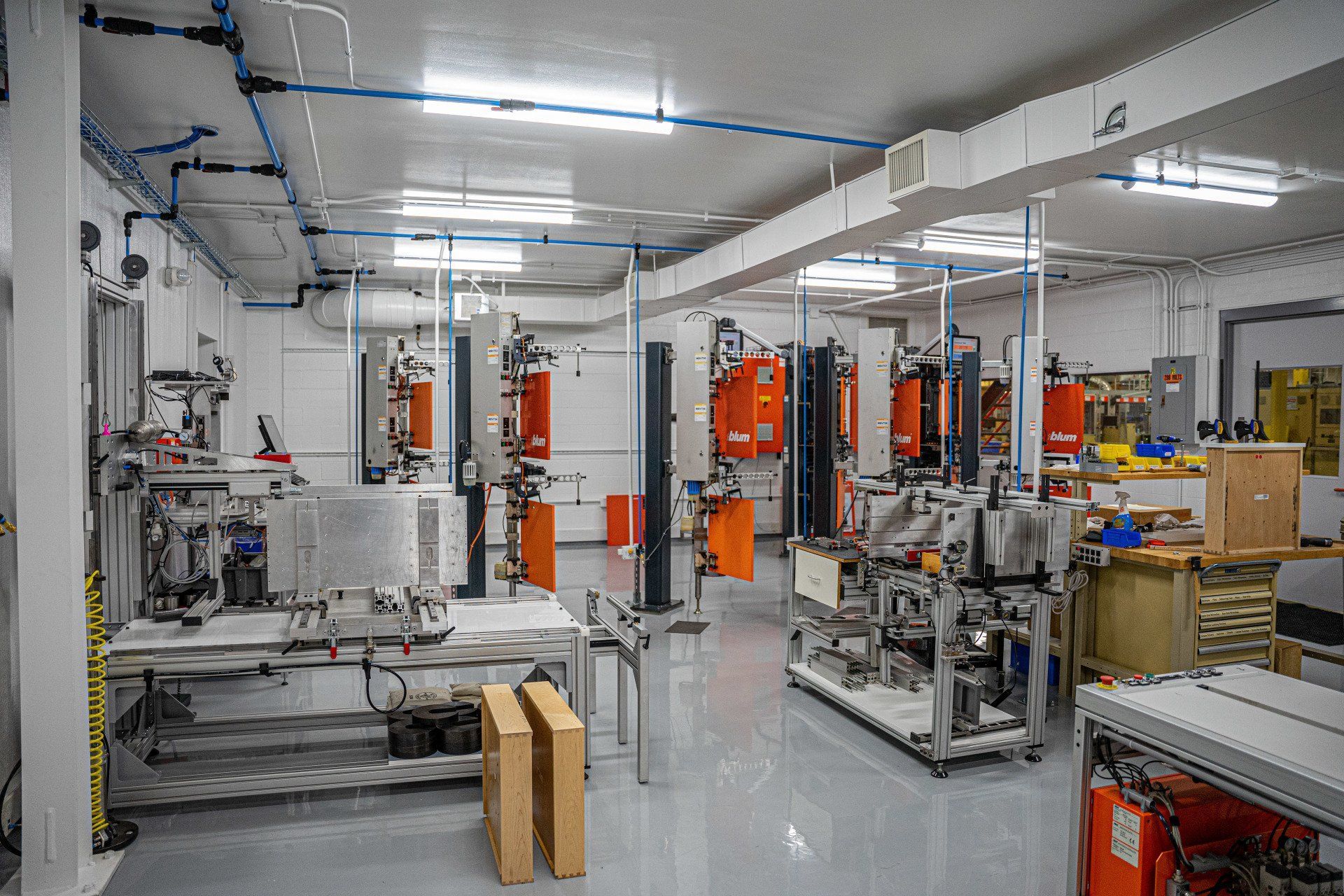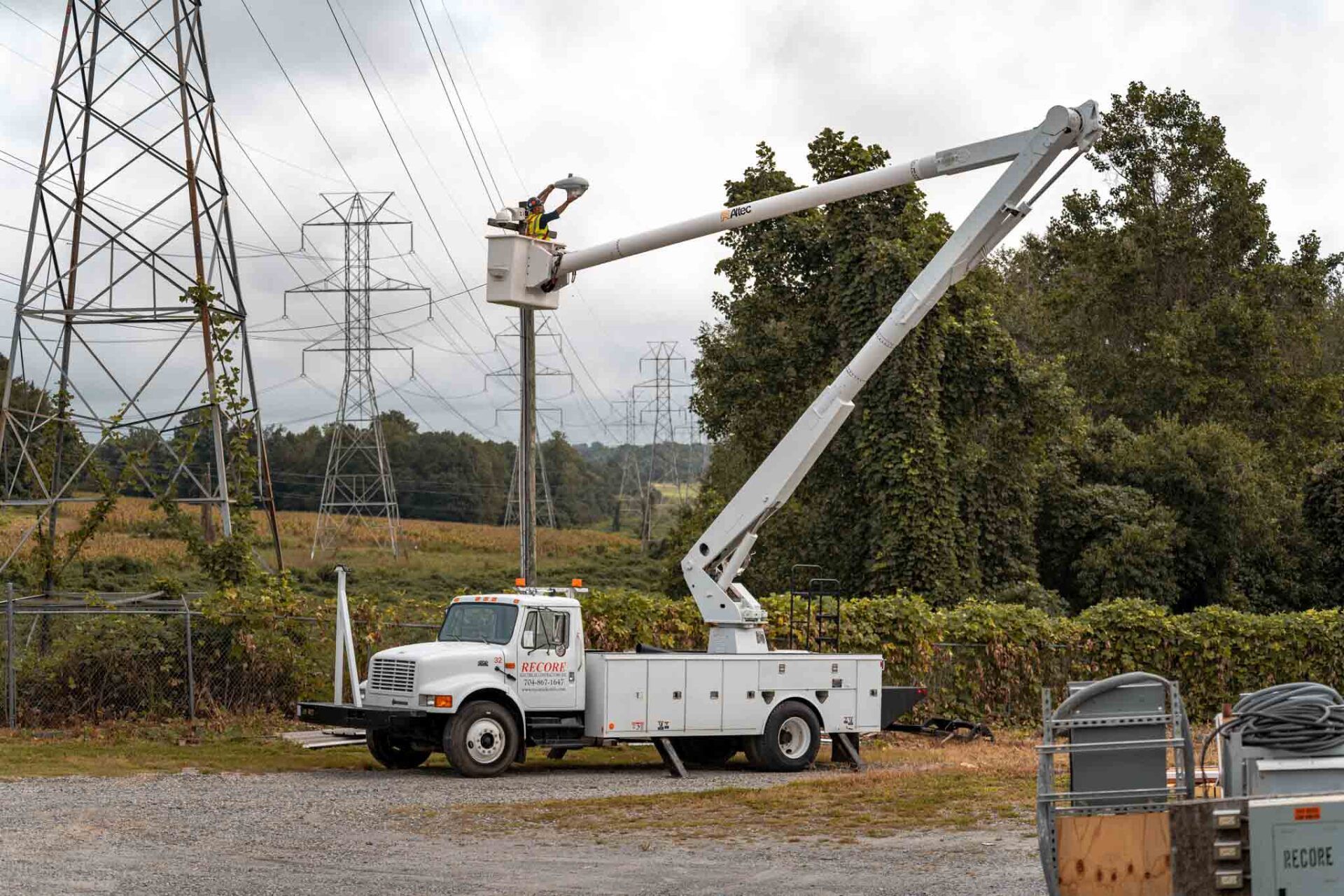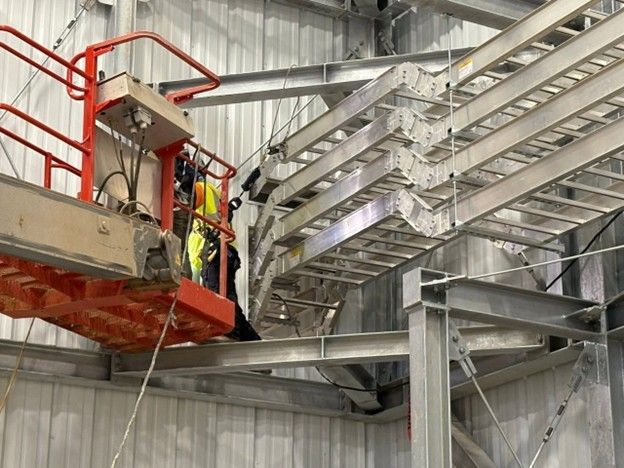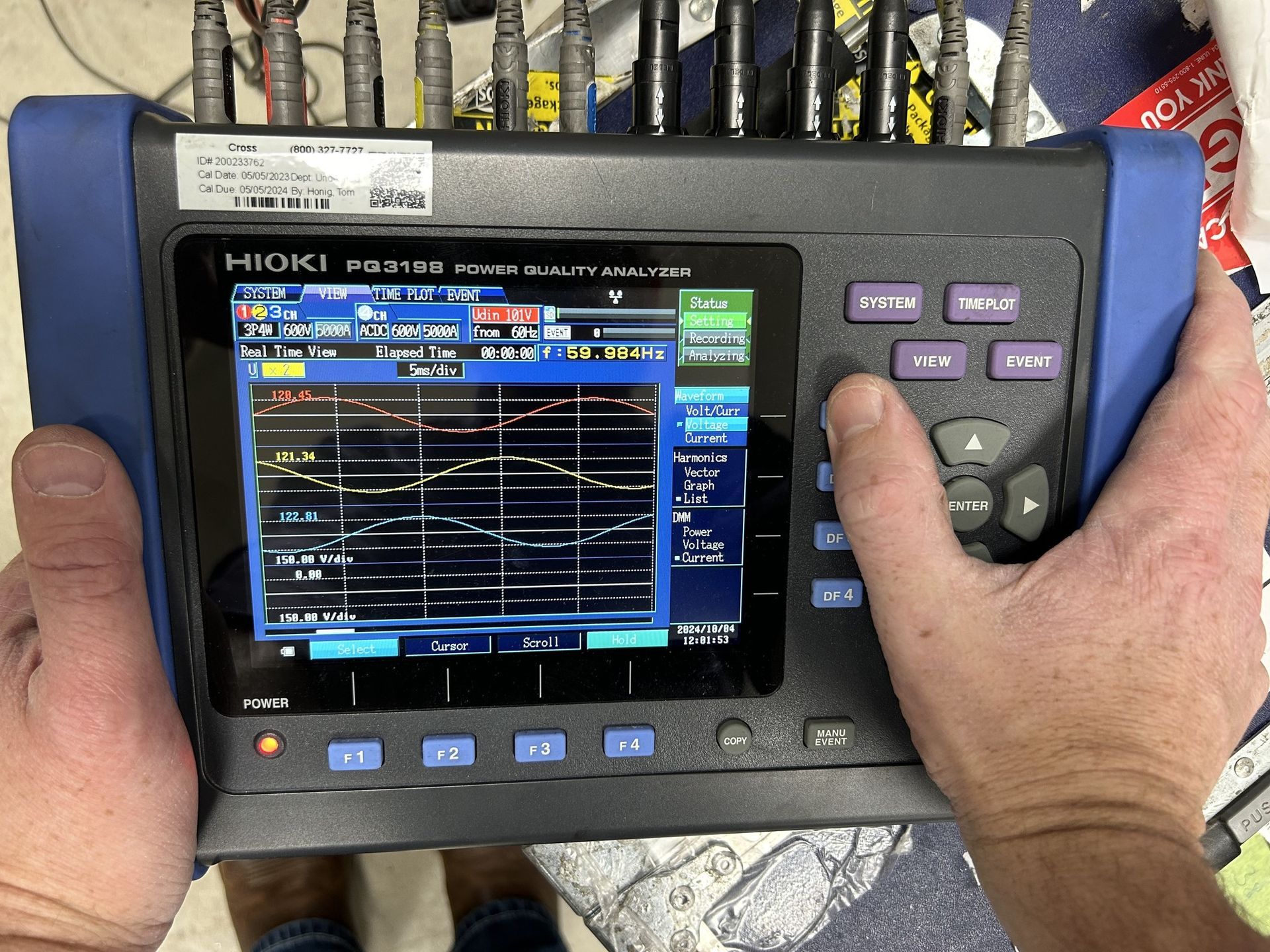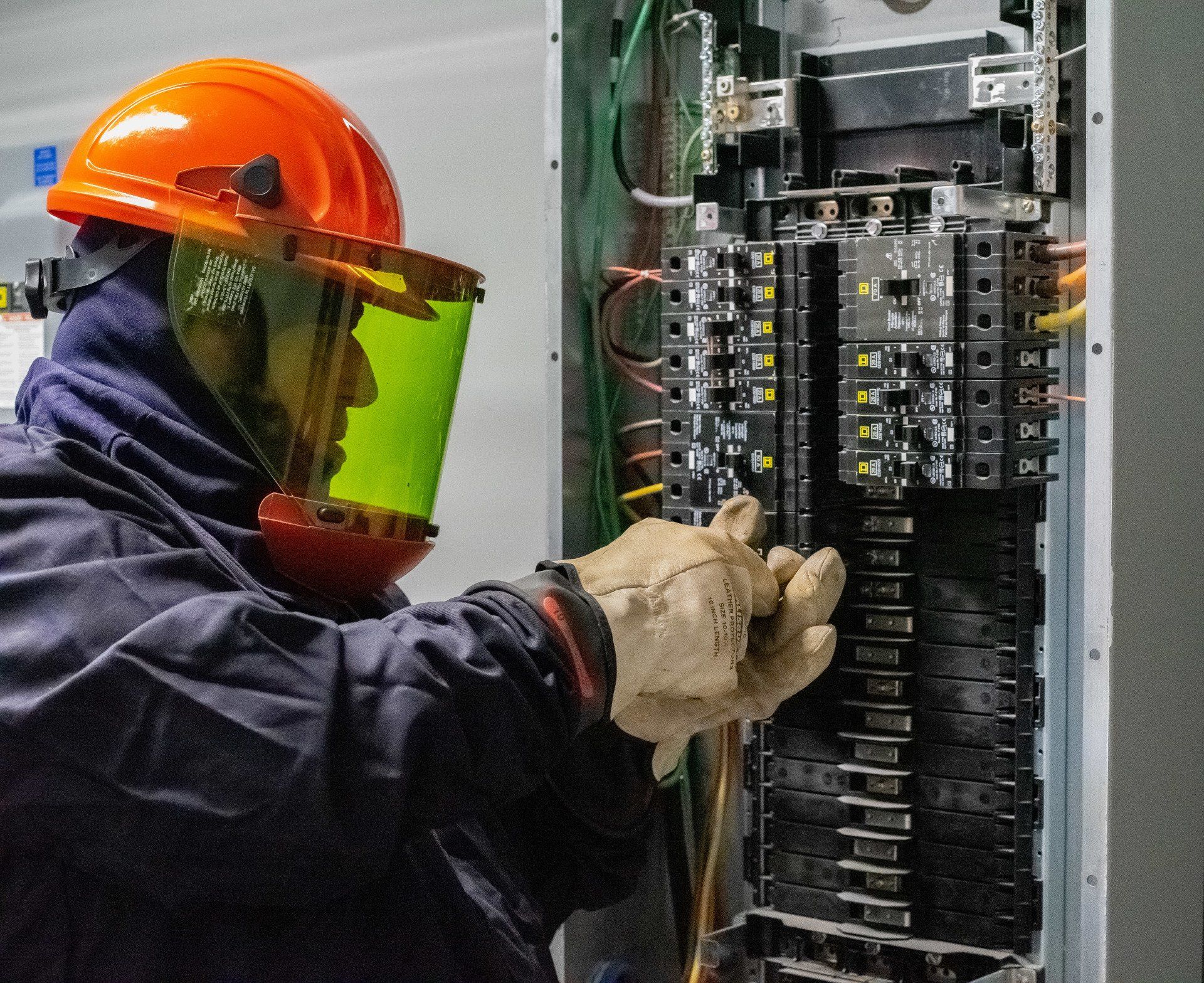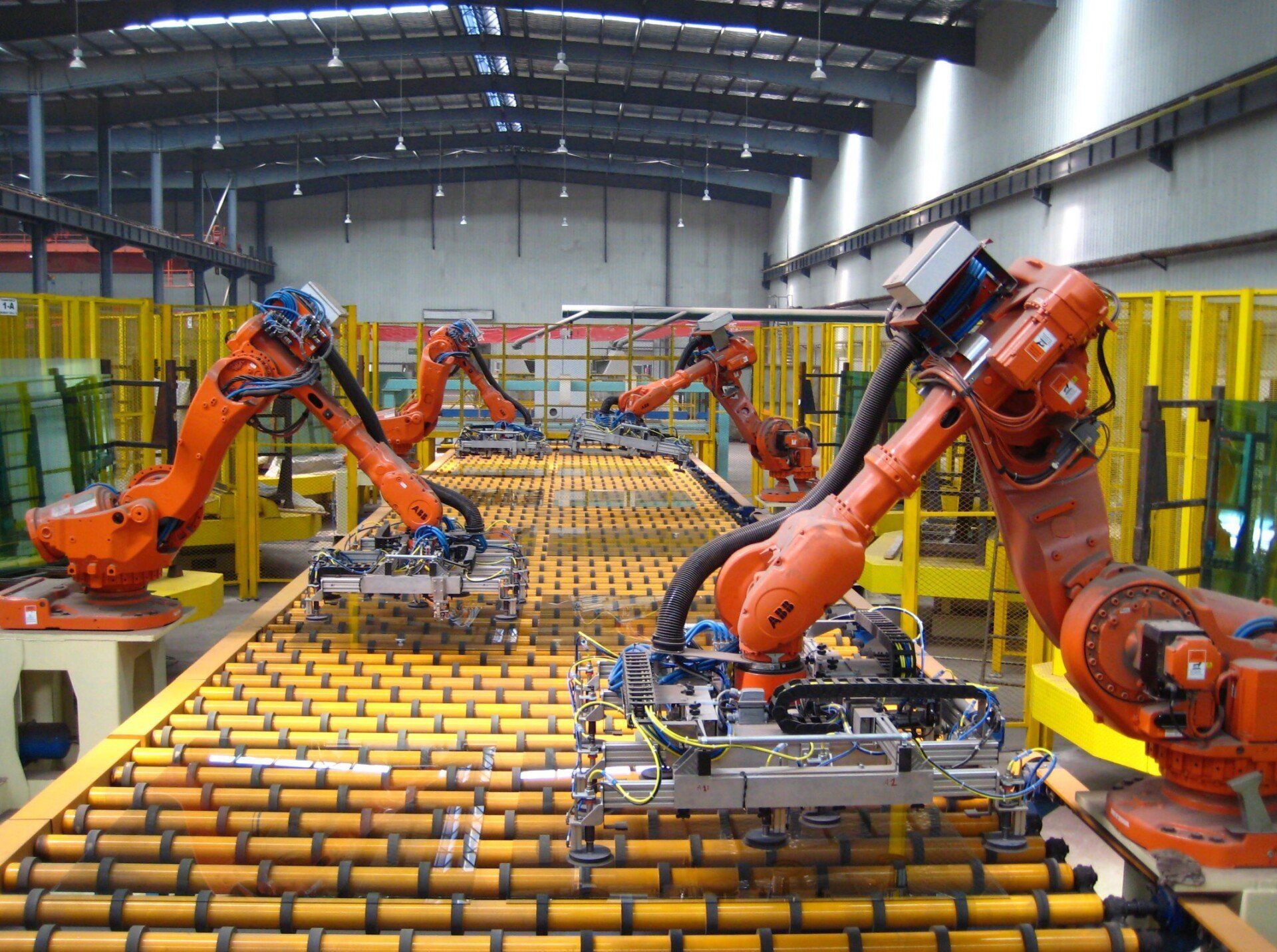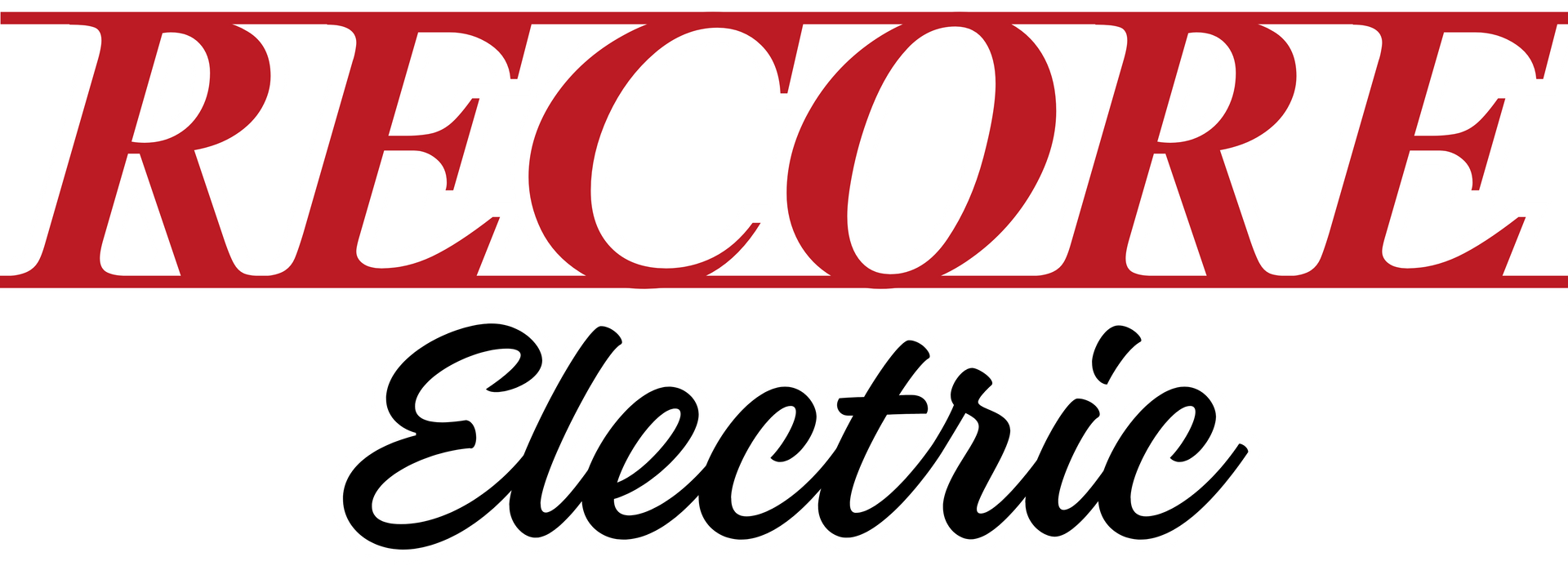Phased Electrical Construction: A Strategic Approach to Complex Projects
Renovating or expanding a facility that must remain operational is a significant challenge, particularly when it comes to electrical systems. For industries that require consistent uptime, the electrical infrastructure cannot simply be shut down for upgrades. That’s where phased electrical construction plays a critical role.
At Recore Electrical Contractors, we specialize in designing and executing phased electrical construction projects that maintain business continuity while modernizing or expanding facility systems. Whether it's a facility retrofit, system upgrade, or electrical infrastructure expansion, our methodical approach minimizes disruption, controls cost, and keeps your project moving forward.
What Is Phased Electrical Construction?
Phased electrical construction is a strategic project delivery method where electrical work is divided into separate, manageable phases. Each phase is scheduled to coordinate with ongoing operations, allowing portions of a facility to remain functional while upgrades or installations take place elsewhere.
The main benefit is flexibility. Instead of waiting until an entire space is vacant or risking shutting down operations, work is scheduled during off-hours, weekends, or confined to sections of a facility at a time. This process allows businesses to continue, often without the occupants even noticing the construction happening around them.
Why Phasing Matters for Electrical Systems
Electrical systems differ from other building elements like drywall or flooring. Power, lighting, control systems, and life safety devices must remain functional during upgrades. In many buildings, the electrical system is the backbone that supports HVAC, access control, security, fire alarms, and even communications.
Disruptions can have serious consequences, from production delays to safety violations. The U.S. Department of Energy emphasizes the importance of maintaining electrical reliability, particularly for critical infrastructure facilities where outages can result in financial losses or safety hazards.
Phasing allows electrical contractors like Recore to:
- Isolate power zones for targeted work
- Coordinate temporary power setups
- Upgrade panels and switchgear incrementally
- Replace wiring and conduit in sections
By sequencing the work logically, risks are reduced and productivity remains intact.
Recore’s Approach to Phased Electrical Construction
Executing a successful phased project starts with planning. At Recore, we begin every job with a collaborative approach that includes input from owners, facility managers, engineers, and general contractors. Our process includes several key steps:
1. Comprehensive Site Evaluation
We begin by evaluating the facility’s layout, electrical load, system age, and operational requirements. This includes reviewing panel schedules, as-built documentation, load studies, and system redundancies. Our field engineers also identify areas that require temporary power or life safety accommodations.
2. Phasing Plan Development
After gathering the necessary data, we develop a detailed phasing plan that outlines:
- Which systems and areas are affected during each phase
- Temporary power needs and locations
- Critical cutovers and switch times
- Night or weekend shift requirements
- Compliance checkpoints with the Authority Having Jurisdiction (AHJ)
This plan becomes the roadmap for the entire construction schedule and is shared with all stakeholders before work begins.
3. Safety and Code Compliance
Safety is the top priority during phased work. Our team works closely with safety managers to identify high-risk areas and build protections into the schedule. Lockout/tagout procedures, signage, fire watch, and OSHA-approved access routes are standard on all Recore jobs.
According to the Occupational Safety and Health Administration (OSHA), improper handling of live electrical work is one of the leading causes of jobsite incidents. We adhere strictly to NFPA 70E standards and partner with clients to maintain a hazard-free environment.
5. Communication and Coordination
Phased work only succeeds when everyone is on the same page. Recore project managers meet regularly with facility contacts to:
- Discuss weekly progress and upcoming impacts
- Adjust timelines around operational needs
- Coordinate around inspections and deliveries
- Minimize noise, dust, and downtime in sensitive environments
We also provide regular lookahead schedules so clients can anticipate changes and prepare accordingly.
6. Temporary Power and Contingency Planning
During system shutdowns or cutovers, Recore provides temporary power using generators or battery systems when required. Our electricians route safe, code-compliant temporary circuits to keep essential operations running. This step is especially common in healthcare, manufacturing, and logistics facilities where downtime is not an option.
Contingency planning is built into every phase. If an area cannot be accessed or if an unanticipated issue arises, our team is ready with pre-approved alternatives that keep the schedule intact.
7. Seamless Transition to New Systems
One of the most critical moments in phased construction is the transition from old systems to new ones. This can involve complex tasks like:
- Switching over to new switchgear or control panels
- Bringing a newly installed generator online
- Migrating IT or automation systems to updated power sources
We rehearse these transitions and schedule them at times that minimize impact. Our electricians test systems in advance and walk through each step with clients before final implementation.
When to Use Phased Electrical Construction
Recore recommends phased construction when:
- A facility cannot shut down entirely for renovations
- Tenant agreements prevent long-term occupancy disruption
- Equipment cannot be powered off for more than a few hours
- Work must be completed during off-seasons or low-traffic periods
- Budget constraints require spreading work across fiscal years
This method is not only practical, but it often reduces risk and cost over time. Phasing allows contractors to adapt to discoveries made during early phases and refine the plan as work progresses. For example, if a phase reveals old wiring not shown on blueprints, the scope of future phases can be adjusted without derailing the whole project.
Benefits to Owners and Facility Managers
Owners and operators who choose phased electrical construction gain:
- Continued access to building systems and spaces
- Predictable timelines that align with business needs
- Controlled budgets with fewer surprises
- Reduced need for tenant or employee displacement
- Peace of mind knowing operations can continue safely
It also gives facility managers the ability to prioritize upgrades. Instead of replacing an entire system at once, work can be performed in stages based on urgency, age, or regulatory compliance.
Conclusion
Phased electrical construction offers a clear path forward for complex renovations in occupied buildings. It allows facility owners to modernize infrastructure without pausing operations or impacting productivity. At Recore, we’ve refined this approach through years of experience working with clients in sensitive, high-demand industries.
Our team takes pride in making the complicated feel routine. From concept to commissioning, Recore Electrical Contractors delivers power where and when it’s needed, one phase at a time.
